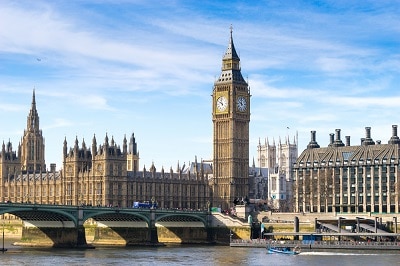Representatives of the Environmental Policy Forum (EPF), including CIWM, have urged the House of Lords to take “crucial” environmental considerations into account during their scrutiny of the EU Withdrawal Bill.
The bill, which is also referred to as the Great Repeal bill, implements the UK’s exit from the EU and is the bill which removes the power of EU institutions to legislate for the UK.
It also carries over existing EU law into the UK statute books. It was passed with a majority of 29 through the House of Commons in January of this year and is currently being scrutinised by the House of Lords. It has completed first and second Readings in the Lords and the committee stage is scheduled to begin today.
In a briefing to the House of Lords this week representatives of the EPF, which represents over 70,000 environment professionals, say that Peers must today consider whether the bill “transposes the principles of environmental protection”.

The House of Lords is considering the Brexit Bill (picture: shutterstock)
“Given the large volume of EU environmental legislation and the positive influence this has had on the UK’s environment, we welcome the steps being taken to transfer the body of acquis into UK law,” explained professor Will Pope, chair of the Environmental Policy Forum.
He added: “However, it is important that this is undertaken in a robust and transparent manner. We are concerned that the issues we’ve highlighted are not adequately addressed by the Bill.”
Four concerns
As well as transposing the principles of environmental protection, the EPF called on Peers to ensure that the legislation provides parliament with appropriate scrutiny, closes the governance gap by introducing a new independent body, and enables “collaborative working” with the devolved nations.
The group made reference to clause 7 of the bill, which states that a minister “may make such provision as the minister considers appropriate to prevent, remedy or mitigate- (a) any failure of retained EU law to operate effectively, or (b) any other deficiency in retained EU law”.
In the full briefing, the forum explained that the powers for a minister here are “incredibly broad and will be able to achieve anything that could be done through an act of Parliament”.
The EPF suggested that the government should make a recommendation for each statutory instrument as to the appropriate level of scrutiny to which it should be subject, and for this to then be reviewed and decided by a parliamentary committee.
Independent body
Once the bill is passed and any transitional period negotiated ends, the role of the European Commission and the direct jurisdiction of the Court of Justice of the European Union (CJEU) will end.
The forum called on the House of Lords to ensure the bill includes plans for an “independent, well-resourced” expert body to take on the “investigative” role of the EU Commission. They also called on the body to be funded by the UK Assemblies/ Parliaments, in a similar way to the National Audit Office.
The EPF’s member bodies include the Society for the Environment, CIWM and the Chartered Institution of Water and Environmental Management.
In the brief to the House of Lords, the EPF explained that “environmental issues often require long term plans away from the influence of short term political timescales, and membership of the EU has provided the UK with a framework for long term strategic thinking outside the normal political cycles.”
In their sign off, the group pledged their continued support to the Peers during all stages of withdrawal to ensure that the work of their members is not “reversed” as a result of Brexit.
Mr Pope added: “Our organisation and its members are all committed to working with the Government to ensure the environment is protected and enhanced for the public benefit. The professionals we represent need reassurance that their previous achievements in making the UK an international leader on environmental progress will not be undermined or, worse still, reversed.”
The post Environmental groups lobby Lords over Brexit Bill appeared first on letsrecycle.com.
Source: letsrecycle.com Waste Managment


